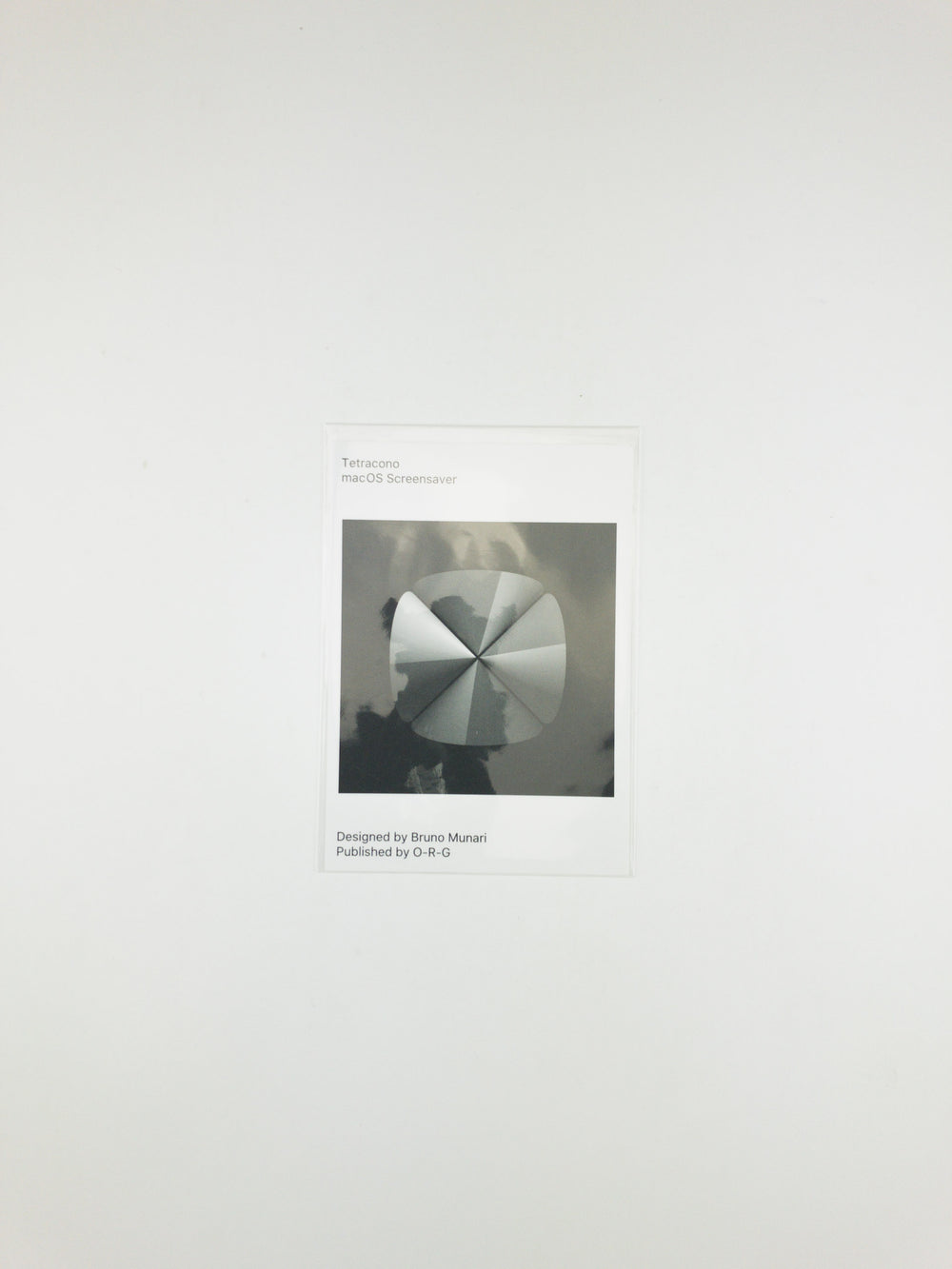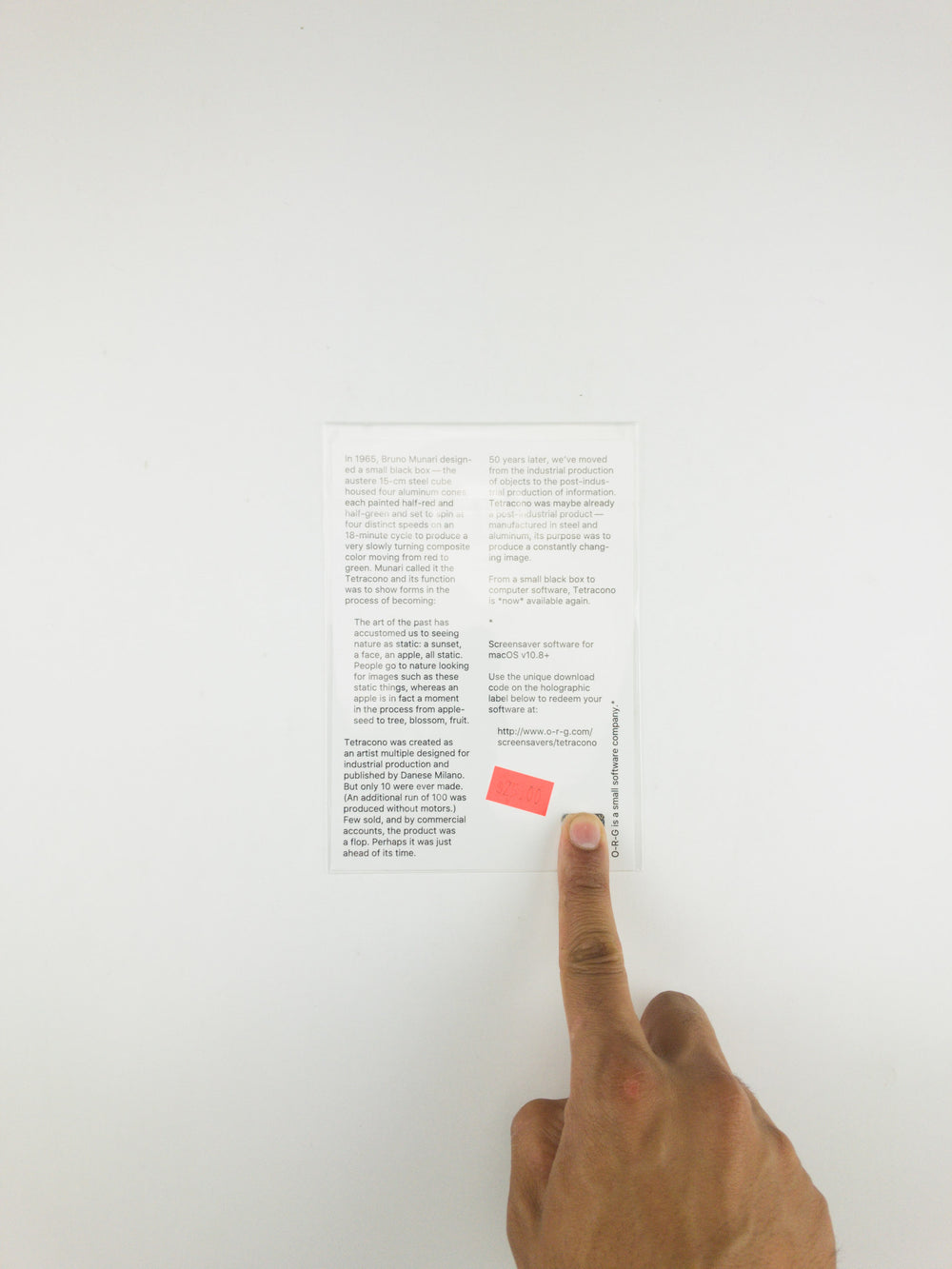O-R-G


O-R-G
In 1965, Bruno Munari designed a small black box — the austere 15-cm steel cube housed four aluminum cones, each painted half-red and half-green and set to spin at four distinct speeds on an 18-minute cycle to produce a very slowly turning composite color moving from red to green.
Munari called it the Tetracono and its function was to show forms in the process of becoming:
The art of the past has accustomed us to seeing nature as static: a sunset, a face, an apple, all static. People go to nature looking for images such as these static things, whereas an apple is in fact a moment in the process from apple-seed to tree, blossom, fruit.
Tetracono was created as an artist multiple designed for industrial production and published by Danese Milano. But only 10 were ever made. (An additional run of 100 was produced without motors.) Few sold, and by commercial accounts, the product was a flop. Perhaps it was just ahead of its time.
50 years later, we’ve moved from the industrial production of objects to the post-industrial production of information. Tetracono was maybe already a post-industrial product — manufactured in steel and aluminum, its purpose was to produce a constantly changing image.
From a small black box to computer software, Tetracono is *now* available again.
Six Prototypes for a Screensaver was commissioned for “Quick, Quick, Slow: Word, Image and Time”. Curated by Emily King, this exhibition is a co-production between Museu Colecção Berardo and ExperimentaDesign Lisboa 2009, 10 September – 29 November.